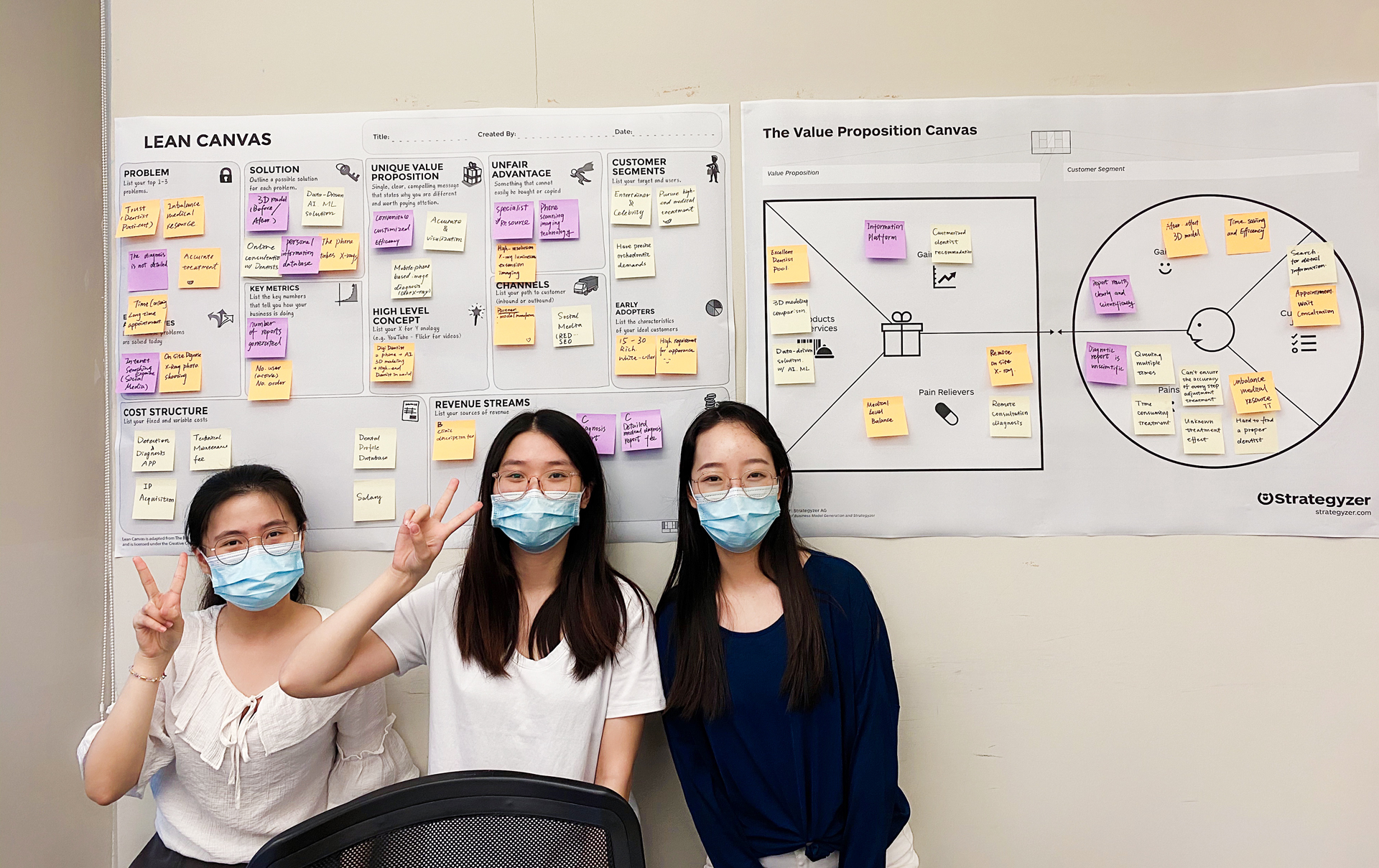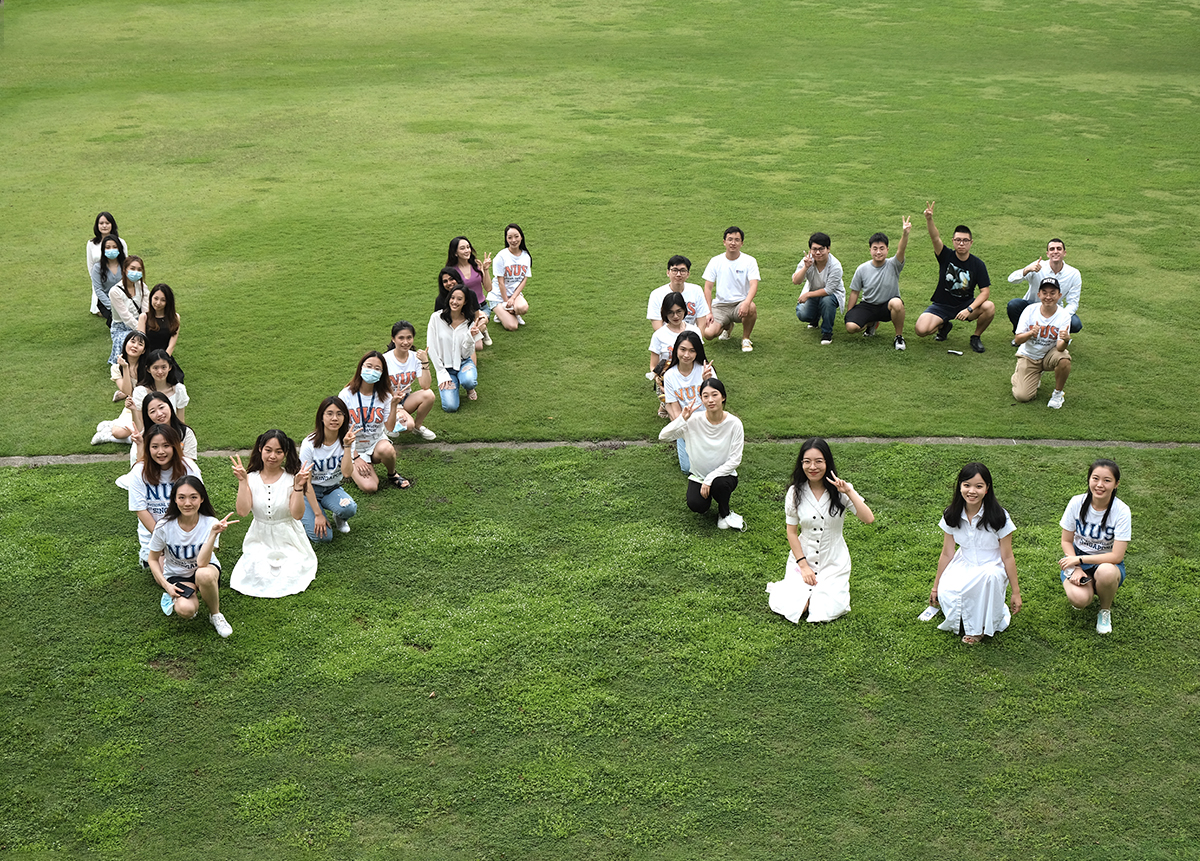Common wisdom holds that to achieve career success, one should join the workforce as soon as possible after graduating, and build up experience in the industry that one was trained for. However, technological disruption and globalisation have stirred up transformation and change, revealing new opportunities for enterprising talents.
For two young graduates who wanted to explore less conventional career paths, this involved going back to school. To carve out the futures they desired, Lin Xiuyan and Jocelyn Wang looked to the National University of Singapore (NUS) and its Masters of Science in Venture Creation (MSc in Venture Creation) programme.
As a newly minted graduate with a degree in hotel management, Xiuyan had already set her sights beyond the field in which she had been trained. She dreamed of becoming an entrepreneur. However, she was faced with a dilemma. How could she pick up the skills needed to set up her own venture?
As she explored her options, she came across the MSc in Venture Creation programme. It checked off all her requirements. In addition to being a multidisciplinary programme that combined the expertise of six different schools, it offered hands-on learning, and would match her up with mentors providing guidance every step she took towards realising her entrepreneurial dreams.
 Lin Xiuyan (middle) with her classmates
Lin Xiuyan (middle) with her classmates
“An education from NUS was attractive to me because NUS is established and has a reputation for quality education,” Xiuyan said. “I was assured that the curriculum would help me build the strong foundation that I needed to begin my career.
“I chose the MSc in Venture Creation programme over a traditional Master of Business Administration as the programme provides to people that are looking to develop their own start-ups with the right set of competencies and tools. From planning to execution—business model analysis, product design, incubation and product release—all these areas are covered in this programme.”
She highlighted how the programme combined theory and practice, tackling real-world problems through the application of academic knowledge to develop solutions. In the module Lean Startup Practicum (TR5049), Xiuyan and three of her classmates came together to work a project based on a problem they had experienced first-hand.
“Traditionally, students looking to pursue an overseas undergraduate or postgraduate degree rely on educational consultants for information on courses. However, often the agents are not able answer questions outside curriculum, such as questions on tutors, courses, and graduate career development," Xiuyan shared. “As we are international students at NUS, we understand the frustration that applicants like ourselves face. Addressing this problem was the goal of our project.”

Thus, the group developed a social network platform that uses artificial intelligence to match up enrolled students to potential applicants who wish to find out more the programmes they are interested in.
“Our platform bridged the gap for potential applicants to gather better quality information about courses from students. Who else would know a course better than those who are in it?” she said.
During the project, Xiuyan’s team were glad they could turn to their tutors for guidance and advice. This was an advantage due to the multidisciplinary nature of the programme; the tutors had experience in both technology and business, and thus were able to share their real-world knowledge.
Xiuyan also did not shy away from learning new skills and familiarising herself with new software tools. Continuous learning was encouraged in the programme, even when she took on an internship at Singapore Airlines. During this time, she saw how even an established enterprise was using digital innovation to keep on the cutting edge.
Xiuyan shared that her biggest achievement as a student in the programme was seeing her team’s practicum project platform to conclusion. In spite of the struggles they faced, it was in the doing of the project itself that the team learnt the most.
“I believe that we need come out of our comfort zones and learn new skills in order to develop ourselves,” Xiuyan professed. “We need to keep continuously learning. That is a vital characteristic that everyone needs to have in order to succeed in business or life.”
Xiuyan’s fellow coursemate, Jocelyn was similarly driven to succeed. With a Law degree in hand, Jocelyn’s career path was seemingly set. However, during her internship, she saw first-hand how different businesses intertwine with each other and how specialisation within a single industry narrowed down opportunities. She did not want to limit herself in this way and thus, made the decision to expand her skillset to broaden her career options.
In Jocelyn’s eyes, the NUS MSc in Venture Creation stood out from other courses. She liked the programme’s multidisciplinary nature and the flexibility it offered to students to choose what area they wanted to develop—whether it was data analytics, supply chain management, business or manufacturing.
 Students from the MSc in Venture Creation
Students from the MSc in Venture Creation
Her time in the programme was never dull. She had chances to gain personal experience in various industries through internships, project assignments and talks by venture founders.
Jocelyn was attached to a medical care start-up for the module Experiential Entrepreneurship Internship (TR5302). She shared that the internship allowed her to experience how a start-up works.
“Many start-ups have similarities in how they function as a company and being in one allowed me to understand how they operate. In addition, working in a start-up allowed me to learn directly from the founders.”
The importance of learning from others who are more experienced could not be understated. Jocelyn herself has a mentor whom she turns to for advice and guidance. In the module Summer Programme in Entrepreneurship (TR3301), start-ups founders were invited to share their experiences with students through seminars. It was during one of these seminars that she attended a talk by the founder of an artificial intelligence visual advertising systems company. Seeing the potential applications for this new technology, she joined the company as an intern. The experience gave her opportunities to interact with the company founder and she eventually became his mentee.
Among those setting up their own ventures, it is not unusual to feel fear or worry. It is not easy exploring the unknown or competing against larger companies with better funding and more established track records. The odds appear stacked against start-up ventures; can they really hope to succeed in the real world? Jocelyn has confidence in her abilities, and pointed out examples of start-ups that have succeeded, noting that there is actually a range of support available for start-ups to tap on.
“There is support for start-ups from various government agencies and enterprises, so we have the opportunities to succeed right from the get go.” Encouraging other aspiring entrepreneurs like herself to make the most of such resources, she recounts the advice given to her by a start-up founder: “When you have an idea, go ahead and do it. Do not hesitate, as things move very fast in this day and age.”

Xiuyan and Jocelyn will graduate soon but their journey is just starting. Whether it is developing their ideas within the robust NUS start-up ecosystem or striking out on their own, the choice is theirs to make. One certainty is that they will already have built a launchpad from which they can develop their careers as they wish. With what they have learnt from the MSc in Venture Creation and the support provided to them, they are in the position to capitalise on the many opportunities coming their way.
Click to find out more about the MSc in Venture Creation.